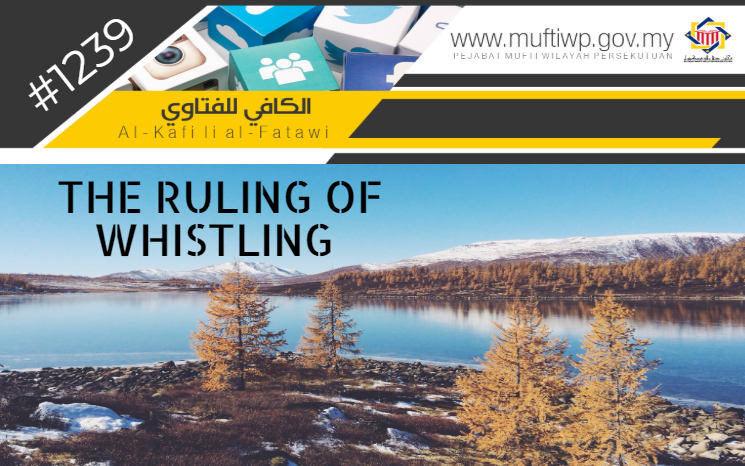
Question:
Is it true that whistling is prohibited in Islam? I once heard that whistling is common for Quraisy disbelievers, is this true?
Answer:
Alhamdulillah, praise and thanks to Allah SWT for the countless blessings He has blessed us all with. Blessings and salutations to the prophet Muhammad PBUH, his family, companions and all those that follow his teachings.
Allah SWT clearly states that the Quraisy disbelievers worship their idols by whistling and clapping their hands:
وَمَا كَانَ صَلَاتُهُمْ عِنْدَ الْبَيْتِ إِلَّا مُكَاءً وَتَصْدِيَةً فَذُوقُوا الْعَذَابَ بِمَا كُنْتُمْ تَكْفُرُونَ
“And their prayer at the House was not except whistling and handclapping. So taste the punishment for what you disbelieved.”
Surah al-Anfal (35)
According to Imam al-Jassas, whistling and clapping hands is considered as a prayer for them, for both these actions are the replacement for supplication and tasbih. It is also said that they would clap their hands and whistle when they are performing worship. (Refer: Ahkam al-Qur’an 3/76)
Hence, it is clear that clapping hands while worshipping is prohibited for it resembles the actions of the disbelievers. As for whistling outside of worship, such as when singing, joking and others, the scholars presented the following opinions:
- Whistling is prohibited. This is the opinion of the Permanent Committee for Scholarly Research and Ifta’ which state that whistling is prohibited for it is a tradition of the jahiliyyah and a part of their bad morals. (Refer: Fatawa al-Lajnah al-Daimah26/390). Furthermore, Ibn ‘Abbas narrated that whistling is one of the things which are common for the people during the time of Prophet Lot AS. (Refer: Tafsir Ibn Kathir6/276)
- Whistling is makruh (undesirable). This is stated by Ibn Muflih who cited the opinion of Syeikh Abd Qadir. (Refer: Al-Adab al-Syar’iyyah3/375). This is also the opinion of Syeikh Ibn ‘Uthaimin who said that he disliked the act of whistling and stated it as makruh zatiyyah (undesirable according to the custom of a place or manners) and not makruh in terms of syarak. However, he himself does not have any clear evidence to support his opinion. (Refer: Liqa’at Bab al-Maftuh, 4/119)
- Whistling is permissible. This is the opinion of commentary scholars such as Muhammad al-Amin al-Syanqiti and Muhammad al-Tohir ibn ‘Asyur who relate the curses as the act of the Quraisy disbelievers who whistle with the intention of disrupting the Muslims who are praying or reciting the Quran in Masjidil Haram. (Refer: Adhwa’ al-Bayan2/162 danAl-Tahrir wa al-Tanwir 9/339)
Conclusion
To conclude, we would like to state that whistling just for fun without any intention of resembling the acts of Quraisy disbelievers or the people of the Prophet Lot AS is permissible. This is in accordance with an important Islamic legal maxim:
الأصل في الأشياء الاباحة حتى يقوم الدليل على تحريمه
The original ruling of something is its permissibility unless there is an evidence that prohibits it.
While scholars who prohibit it for it is stated in the Quran as an act of worship for the Quraisy disbelievers, although there is no clear evidence that prohibits it if it is done without the intention of worship.
However, the permissibility should not be used for impermissible purposes such as attracting the attention of women, insulting and resembling fasiq people.
Wallhua’lam.

